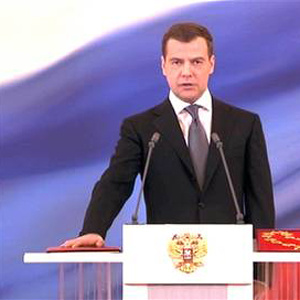Russia’s Failed Middle Eastern Bid

 IRD: Since the presidency of Vladimir Putin, Russia has developed a special interest in the Middle East and North Africa. The reason is clear: both are profitable markets for Moscow, and both have the potential to expand its sphere of influence. In the middle of Putin’s presidency, Russia made attempts to tag along with Western countries over the Palestinian issue and play a more active role with regard to the Muslim World.
IRD: Since the presidency of Vladimir Putin, Russia has developed a special interest in the Middle East and North Africa. The reason is clear: both are profitable markets for Moscow, and both have the potential to expand its sphere of influence. In the middle of Putin’s presidency, Russia made attempts to tag along with Western countries over the Palestinian issue and play a more active role with regard to the Muslim World.Nevertheless, Moscow seems to lack the ‘essence’ to play an influential role in the Middle East. It can gain a huge amount of money from selling arms to Middle Eastern and North African countries, but weapons are not the key to the increase in a country’s influence. Cultural, political and economic issues come first.
Russia also made attempts to perform the role of an honest broker in the Middle East peace process. They have had close relations with both Israel and the Palestinian groups Fatah and Hamas. During the post-2006 parliamentary election isolation, Hamas’ officials were invited to Moscow for negotiations. And an unofficial visit was made by Hamas and Fatah officials after their reconciliation.
Russia’s offer to mediate between Libya and the West can have two explanations: one) the international atmosphere –particularly the agenda of Western powers- eventually forced Russia to vote in favor of the resolution designating a no-flight zone over Libyan territory in the UN Security Council. This resolution paved the way for NATO’s air strikes on Libya. Moscow’s vote can strongly undermine its position among Middle East countries. The vote was even criticized by Vladimir Putin, but his objection was not enough to mitigate the negative impact of Russia’s vote among the Arab countries, and two) Moscow wants to save the multi-billion dollar arms deal with Qaddafi’s regime. Saving the Libyan dictator from this battle will preserve their interests and perpetuate their military presence in North Africa. Qaddafi’s fall would be tantamount to a revocation of all contracts signed during Putin’s premiership. It would also mean colder relations between Moscow and North African countries. The Libyan dictator is using Russian weapons to crack down on his people, and this has brought notoriety for the Russians.
At any rate, this age is not in favor of Russia. North Africa is embracing democracy and the new democratic regimes are going to prefer cooperation with Western Europe, a region separated from them only by the Mediterranean Sea. Qaddafi’s days are over, and the next Libyan regime won’t have that close a relationship with Moscow.
But there’s more for Russia to lament. In the meantime, with the gory suppression of the pro-democracy uprising in Syria, Russia will lose its influence in the Mediterranean region more than ever. Moscow has strived to provide itself a base in the Eastern Mediterranean Sea and has sold the Syrians expensive defense systems. With the fall of Bashar Assad, Russians will lose their foothold.
Perhaps it is time for Russia to refocus on domestic issues instead of expanding its sphere of influence. The economy is still facing big challenges in this country. In politics, there are no qualified statesmen, no solid democracy, and no free media. The oligarchic mafia is still a vexation. Moscow also lacks a high stature in the international community. They are the odd member out of the G8, always being threatened with expulsion from the group whenever tensions rise between West and Russia.
* Bahram Amir-Ahmadian is a Russian affairs analyst in Tehran University.

